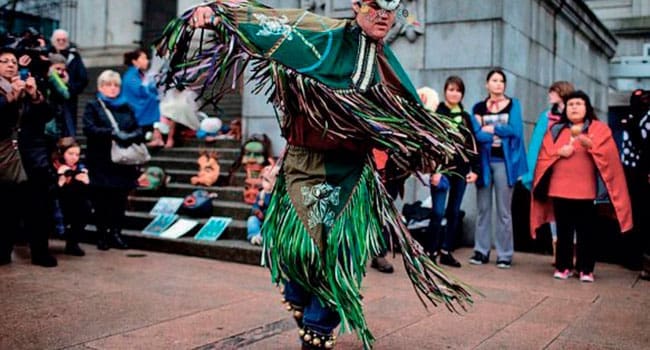 Recent changes at Indigenous and Northern Affairs Canada are causing consternation across indigenous communities, and with other Canadians.
Recent changes at Indigenous and Northern Affairs Canada are causing consternation across indigenous communities, and with other Canadians.
The decision to split the department in two, one part overseeing Crown-indigenous relations and the other overseeing service delivery to communities, comes right out of the 20-year-old report of the Royal Commission on Aboriginal Peoples (RCAP), which was commissioned by the Conservative government of Brian Mulroney following the Oka Crisis.
This fundamental shift in responsibilities comes with great promise and great peril.
If the changes stay consistent with the vision of RCAP, they will benefic First Nations and the country as a whole. The call to separate these two functions is one of the more practical recommendations in the report.
RCAP’s vision for this was to overcome conflict of interest within the department. “It is intended to highlight the responsibilities assigned to the portfolio and to avoid the conflict of interest problem associated with combining negotiation and implementation responsibilities within the same departmental structure,” the report says.
There are certainly precedents for overcoming such conflicts of interest. In 2008, the Specific Claims Tribunal Act was passed by the Conservative government of Stephen Harper. It created an independent tribunal to resolve certain kinds of claims as an alternative to the courts. It was widely recognized that this bill addressed a conflict of interest in the department, which makes the funding decisions and also decides on the validity and settlement of outstanding claims.
Establishing an indigenous relations (negotiation) department and a separate services function makes eminent sense. The report proposes: “The establishment of a new Indian and Inuit services department to meet continuing federal obligations to Indian communities and Inuit, until transition to self-government.”
The intent of department is to negotiate self-governing arrangements with First Nation communities until they’re functioning and self-reliant. So it seems like the indigenous relations department is to make the other service delivery function redundant.
A critical part of the First Nations Financial Transparency Act was not the publication of First Nation chief and councillor salaries (although that was very important). It was the discovery of own-source revenue streams within First Nations being administered under the Indian Act. Increasingly, indigenous communities under department oversight (which are non-self-governing) are developing revenue sources in addition to federal transfers. Some First Nations have their own sources of revenue that outweigh what they receive from Ottawa.
The federal government must ensure that dividing the department into two helps bands negotiate self-government agreements with clear plans to develop own-source revenue with the eventual goal of achieving self-sufficiency.
The RCAP vision clearly envisages a busy indigenous relations department: “The negotiation role involves continuous and intense engagement with Aboriginal nations and their governments.”
If the current federal government’s intention is to negotiate self-governing arrangements with all First Nations so there are no bands administered under the Indian Act, that would benefit bands and Canadians in general. The government needs to use the new administrative structure to sign off on many more comprehensive self-government agreements, removing people from under the jurisdiction of the Indian Act.
Clearly this major change could go sour. If the two departments don’t work in tandem, they could quickly come to compete against each other, particularly over scarce funds. At budget time, they could end up fighting. Bureaucrats in both departments must resist redundancy and digging in their heels to change.
The priority for bands is to seek economic self-reliance as they gain more political authority from Ottawa, so that efficiency increases and costs go down.
Without a clear vision from Ottawa about the change in the department, First Nations and Canadians, in general, have a right to be skeptical. If this federal government and future governments make the changes properly, following the intent of RCAP, and pursue self-governance and self-sufficiency, then these changes would represent a fundamental shift in indigenous policy unseen since the introduction of the Indian Act.
Joseph Quesnel is a research associate with the think-tank Frontier Centre for Public Policy.
Joseph is a Troy Media Thought Leader. Why aren’t you?
The views, opinions and positions expressed by columnists and contributors are the author’s alone. They do not inherently or expressly reflect the views, opinions and/or positions of our publication.

